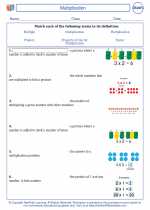Multiplication -> associative property
The Associative Property
The associative property is a property of addition and multiplication that states that the grouping of numbers in a sum or product does not change the result. In other words, you can change the grouping of the numbers in a sum or product without changing the value.
For addition:
a + (b + c) = (a + b) + c
For multiplication:
a x (b x c) = (a x b) x c
Example:
Let's look at an example of the associative property in action:
3 + (4 + 5) = (3 + 4) + 5
12 x (3 x 2) = (12 x 3) x 2
Study Guide
Here are some key points to remember about the associative property:
- It applies to both addition and multiplication.
- The property states that the grouping of numbers can be changed without changing the result.
- It does not apply to subtraction or division.
- It can be helpful to remember the property by thinking of "associating" the numbers in different ways without changing the result.
Practice using the associative property with different sets of numbers to become comfortable with applying it to various situations.
Remember, the associative property is a fundamental concept in mathematics and is used in many different areas of math, so it's important to understand and be able to apply it confidently.
[Associative Property] Related Worksheets and Study Guides:
.◂Math Worksheets and Study Guides Fifth Grade. Multiplication
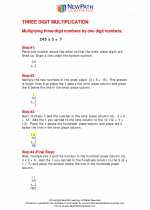
 Worksheet/Answer key
Worksheet/Answer key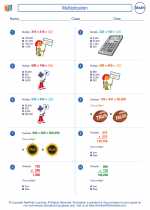
 Worksheet/Answer key
Worksheet/Answer key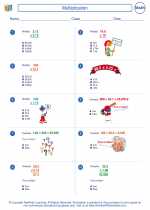
 Worksheet/Answer key
Worksheet/Answer key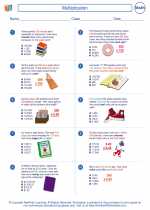
 Worksheet/Answer key
Worksheet/Answer key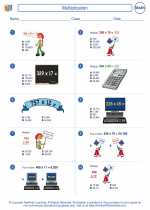
 Worksheet/Answer key
Worksheet/Answer key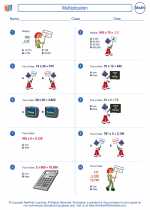
 Worksheet/Answer key
Worksheet/Answer key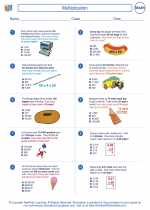
 Worksheet/Answer key
Worksheet/Answer key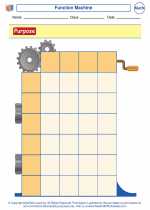
 Vocabulary/Answer key
Vocabulary/Answer key